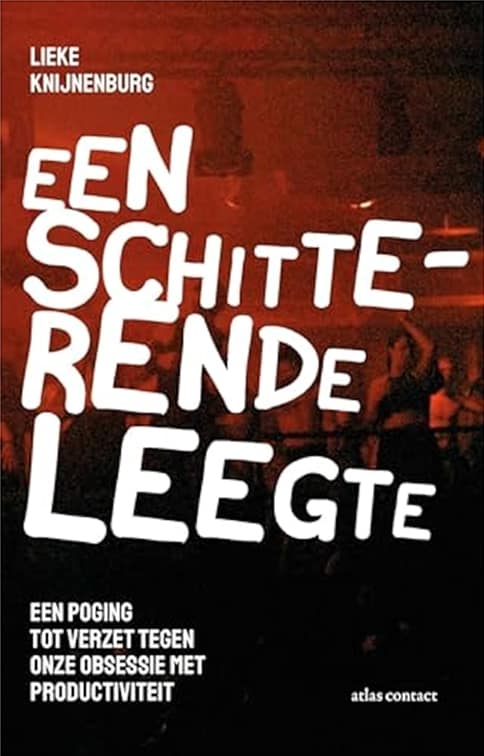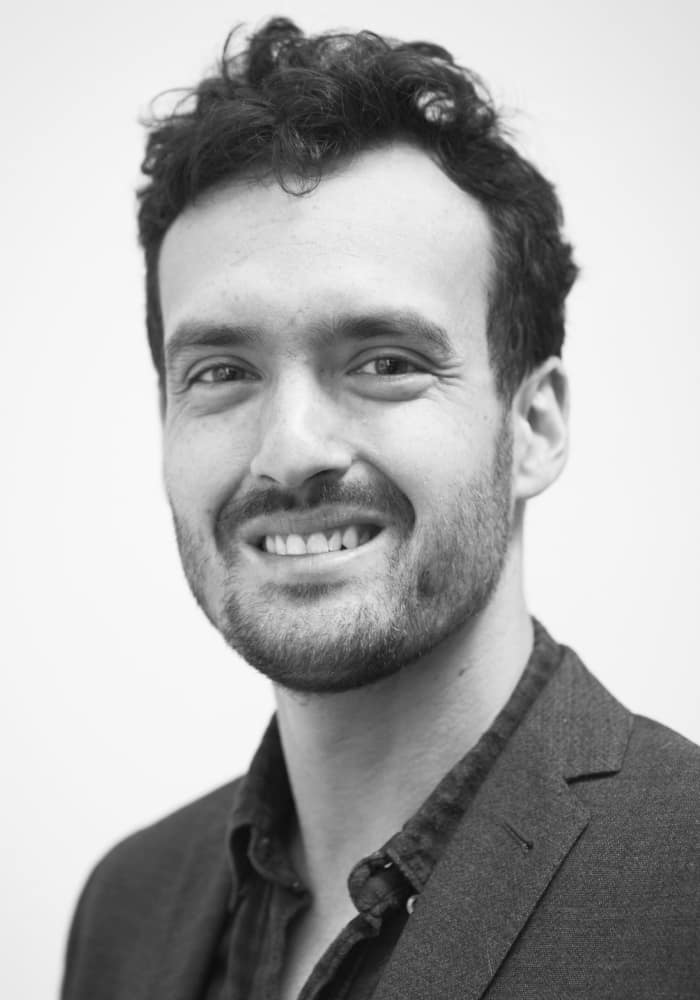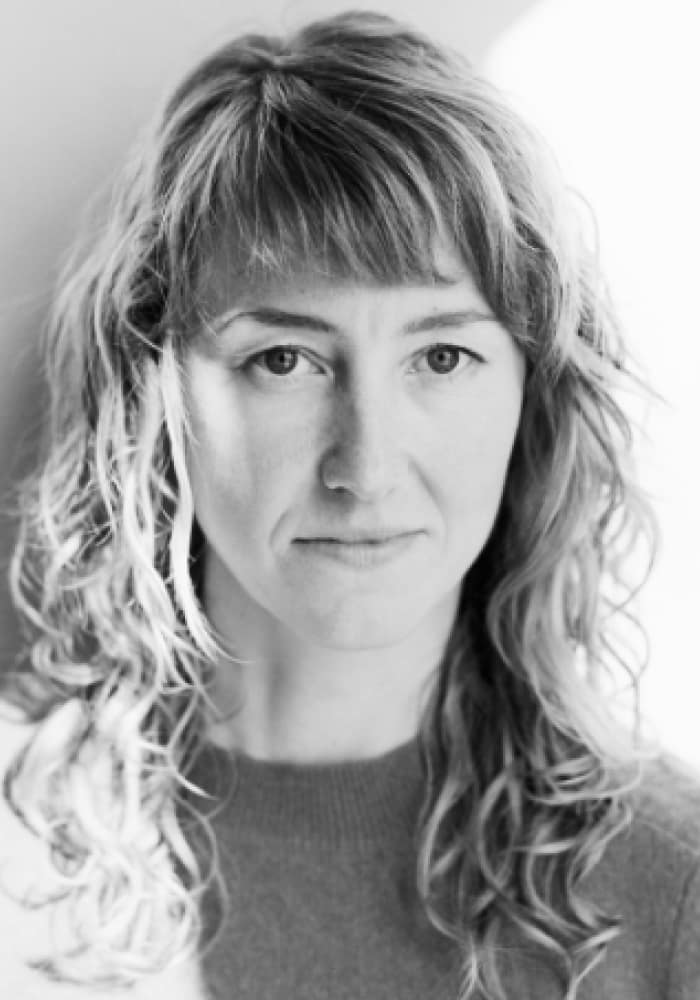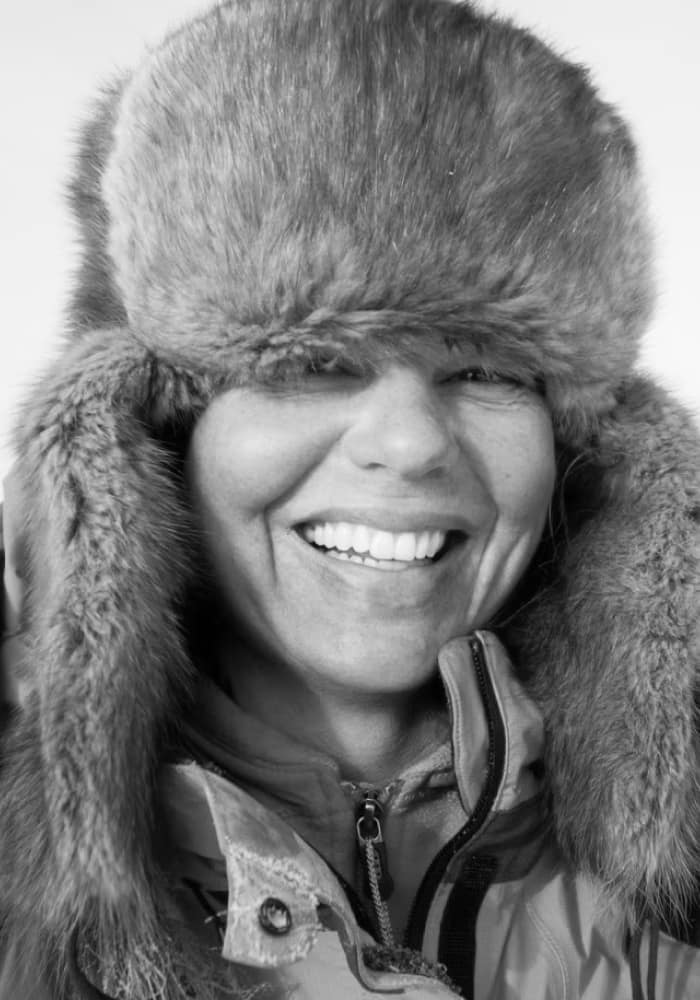Author and philosopher
Lieke
Knijnenburg


How to Resist a Life as a Top Consumer?
In a world where everything is measurable and you can always do more, it’s hard to pause. No one can escape the capitalist rat race. Philosopher Lieke Knijnenburg has grappled with this since her student days. The cult of productivity teaches us that hard work is better than relaxation, that our worth as humans depends on our output, and that there’s always more we could be doing. Far beyond the realm of work (in relationships, for example), this ideal crowds out other visions of a good life.
In this book, Knijnenburg dissects — with unflinching honesty — her urge to reduce life to a to-do list and her attempts to escape herself: through others, the night, or intoxication. The result is a philosophical struggle with surrender.
Interview Lieke Knijnenburg: “Cities feed you the false idea that anything is possible—if you just live fast enough.”
6 a.m., New York’s skyline. Lights glow in the upper floors of skyscrapers. “The millionaires [...] are already awake, while everyone below remains in dreamland,” narrates a TikTok video viewed millions of times. The message: If you’re productive—say, by rising early—success (and maybe a penthouse) awaits.

This example could easily feature in A Radiant Void, the debut book by journalist and philosopher Lieke Knijnenburg (31), released this month. In this provocative work, Knijnenburg dissects our era’s “productivity fetish” and her own struggle to avoid reducing life to a checklist. “In a world where everything is measurable and you can always do more, it’s hard to pause. No one escapes the capitalist rat race,” reads the blurb. Her book joins a wave of anti-productivity literature in recent years, like Tom Grosfeld’s Agenda Hedonism (2022), Marian Donner’s The Self-Destruction Book (2019), and Jenny Odell’s How to Do Nothing (2020).
Knijnenburg has long written for De Groene Amsterdammer on intimacy under capitalism, nightlife, Berlin’s evolution, identity, freedom, and resistance. I met her at a restaurant near Artis to discuss wild nights at Berlin’s legendary techno temple Berghain, Nietzsche, and open relationships.
Your book critiques society’s “productivity fetish.” You live in Berlin, known for its alternative, anti-capitalist ethos. How did moving there shape you?
“Berlin is wonderful. People here have more ways to unwind and have fun without heavy consumption. When I first moved, I chased every tip I got—checking off lists like a maniac. But it’s more rewarding to find one great bar, build connections, and let a place leave its mark.”
Did Berlin curb your checklist obsession?
“Yes. The vibe here is different. If you try to plan meticulously Dutch-style, people shrug: ‘We’ll see.’”
But is Berlin’s soul under threat? I’ve read about club closures, rising rents, even a Rocycle opening.
“Capitalism spares no city. Gentrification happens here too. Clubs close; housing costs rise. But it’s not Amsterdam yet. Street fashion is bolder, life is cheaper—that shapes how you live.”
What sparked the book?
“I’m a list-maker—daily, weekly, groceries, work, everything. Once I ticked everything off, I’d freeze. It was embarrassing—I couldn’t even decide what to do on a Saturday. External pressure plays a role: You’re only allowed to feel good after a busy day. Guilt paralyzes. I wanted out. Friends struggled too. As kids, we’d craft or game for hours…”
You link this to capitalism’s evolution. Explain.
“Capitalism required cultivating an entrepreneurial mindset. People weren’t naturally disciplined to work for future gains. It’s about capital growth: invest now, reap later. Since the 1600s, this mentality seeped into us. Post-1960s, ‘enjoyment’ became a mandate—consume maximally. Capitalism needs people to crave its products.”
Isn’t the girlboss/hustle era over?
“The anti-work movement critiques labor, but productivity poisons leisure too. Even friendships become self-optimization tools. Love becomes a stressful efficiency project.”

Your nightmare is Nietzsche’s “last man.” Who is that?
“Nietzsche’s ‘last man’ is bored, rule-following, never questioning if this is real life. Someone avoiding risk. I see it everywhere—people chasing comfort, ending up bored and lonely. We need to surrender to the unexpected.”

You notice this when visiting the Netherlands.
“Instead of rigidly planned coffee dates, I’d crash at friends’ places. Waking up together, diving into the day—that spontaneity matters.”
Why does the city exacerbate this?
“Philosopher Hartmut Rosa calls it ‘excessive freedom.’ Cities sell the lie that everything is possible if you live fast. You can cram multiple lives into one. But that makes committing to anything hard. Excess freedom traps us.”
What’s behind your book’s title, A Radiant Void?
“Checking off lists shines outwardly. But by day’s end, you’re hollow. Conversely, when I let go, a glorious void opens—space for life to flood in.”
You link this to writing, dancing, and nights at Berghain. What’s nightlife’s role?
“Dancing lets you forget the day’s norms. Clubs like Berghain, though commercialized, host marginalized groups experimenting with existence. The dancefloor reminds us: Life doesn’t have to be a race. We can just be, together. The ‘last man’ would pop vitamins to cure a hangover. But why feel guilty? Lazy recovery days are valid.”

You mention open relationships as resistance. How?
“I’m 30, in a long-term relationship. I wondered: Is this it? Open relationships question the standard script—two people, closed off. Affairs hurt, but I noticed this trend’s dark side: optimizing love like a productivity project. How can love flow freely?”
Hopeful signs against productivity tyranny?
“Friends rejecting the script—homeownership, stable jobs, monogamy—inspire me. One artist friend lives in a van. It’s tough, but she resists being commodified. Hope lies in small moments: Recently, a pregnant woman forgot her bike lock. We chained ours together, shopped, chatted, swapped numbers. No competition—just connection.”
LOCATION

Zuiderkerk
The Zuiderkerk is a 17th-century Protestant church in the Nieuwmarkt area of Amsterdam, the capital of the Netherlands. The church played an important part in the life of Rembrandt and was the subject of a painting by Claude Monet.
Zuiderkerkhof 72,
1011 HJ Amsterdam
Sign up to receive updates on new speakers, posts, and upcoming events.
©2025 Stichting G10 van de economie | KVK 61319023
















